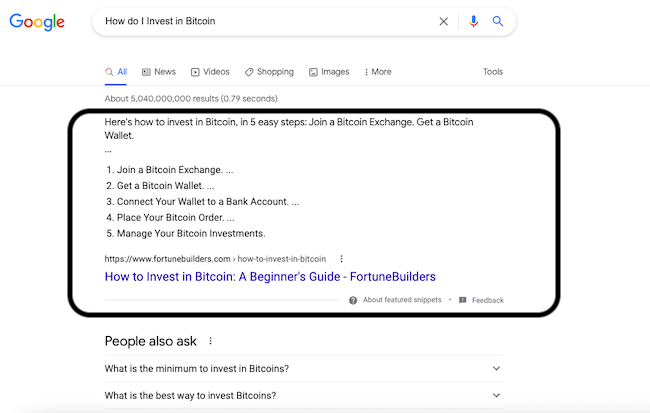The art of SEO writing is all about using the right keywords and phrases to help your website rank higher on search engine results pages (SERPs).
While there are no guarantees that you will achieve first-page rankings with the right combination of keyword placements and density, following some simple guidelines can give your website a better chance of ranking higher.
In this article, we’ll discuss writing for SEO in more detail, how to use keywords and phrases effectively in your SEO content writing, as well as some tips for improving your website’s ranking.
So let’s get started…
What is SEO Writing?
SEO writing is the process of optimizing your website content for higher visibility. This involves incorporating focus keywords and phrases into your text in a way that is both natural and relevant to your audience.
The goal of SEO writing is to improve your website’s ranking in SERPs, which can result in more website visitors and ultimately, more conversions.

Why is SEO Writing Important?
Since Google makes up more than 90% of all internet searches, it’s important to have your website content rank as high as possible in SERPs. This is where writing for SEO comes into play, as it can help to improve your website’s ranking and bring more traffic your way.
By writing compelling and keyword-rich content, you can help to improve your SEO ranking while also providing valuable information to your website visitors. So, if you’re looking to boost your website traffic and rankings, be sure to focus on quality SEO writing.
How Do I Write for SEO?
Now that you know a little bit about SEO writing, it’s time to learn how to put it into practice. Here are a few tips:
1. Do Your Keyword Research
The first step in any SEO writing campaign is to research the right keywords and phrases for your website. This involves using keyword research tools like Google Keyword Planner or KWFinder to get keyword ideas that are most relevant to your business.
Once you have a list of targeted keywords, you can begin incorporating them into your website content. But be careful not to overdo it – keyword stuffing can actually hurt your ranking.
Bonus Tip: When you’re creating SEO-friendly high-quality content, it’s important to use long-tail keywords. By using specific, niche keywords, you’ll attract readers who are genuinely interested in what you have to say. Not only will this improve your reader engagement metrics, but low competition keywords will rank quicker on Google.

2. Use Keywords Naturally
When using keywords in your SEO writing, it’s important to do so in a way that is both natural and relevant to your audience. Don’t try to force keywords into your text where they don’t belong – instead, focus on writing for your target audience and let the keywords flow naturally. by using keywords in a way that is unnatural, you run the risk of appearing spammy to your readers. This can actually have a negative effect on your SEO efforts.
SEO writing requires a delicate balance. You want to use keywords enough so that your content is easily found, but you also don’t want to overdo it to the point where your content becomes unreadable. When it comes to using keywords, a little goes a long way.
3. Optimize Your Website Content
There are many things an SEO copywriter can do to optimize their website content for better search engine rankings. Here are some of the most important things to consider before you begin to write content:
- Keyword research: Include keywords throughout the article, but don’t overuse them. Your target keyword should be used throughout the article but also make sure you’re using other related keywords.
- Title tags: Make sure the title of the article is catchy and relevant to the topic. It’s also important to add your primary keyword.
- Add an introduction: Include a brief introduction that explains what the article is about.
- Include H2 and H3 header tags: Include subheadings throughout the article to help break it up into easily readable chunks.
- Break it up with images: Include images and videos where possible, as they can help improve website engagement.
- Pay attention to the metadata: Make sure the website’s metadata is correctly configured, including the title tag, meta descriptions, and keywords.
- Monitor progress: Monitor the website’s search engine rankings and make changes as needed.
SEO is constantly evolving, so an SEO writer must be willing to keep up with the latest trends and changes to search engine algorithms. They must also be able to think creatively and come up with new ways to improve web page rankings.
4. Publish Fresh, High Quality SEO Friendly Content Regularly
Another important factor in SEO content writing is writing blog posts on a regular basis. This helps to keep your website’s ranking high, as Google and other major search engines prefer websites with fresh content. So be sure to publish new articles, blog posts, and other content regularly.
5. Use External Links Wisely
Another factor that can help or hurt your website’s ranking is the number of external links you have. Too many links from low-quality websites can actually hurt your ranking, while links from high-quality websites can help improve it. So be sure to start adding external links wisely and only link to high-quality websites.
6. Optimize Your Content for Featured Snippets
You might be asking yourself, “what are featured snippets?”
Featured snippets are the answer boxes that appear at the top of Google search results. They’re drawn from websites that have the best answer to the question being asked, and they’re designed to give users a quick answer without having to click through to any other website.
So how do you get featured in the featured snippet position of Google?
There’s no one-size-fits-all answer to this question, but there are a few things you can do to improve your chances. First, make sure your content is well written and easy to understand. Second, include specific answers to common questions. Third, use short paragraphs and simple sentences. And fourth, make sure your website is properly optimized for SEO.

7. Write for Humans, Not Search Engines
One of the most important things to remember when writing website content is to focus on the humans who will be reading it, not the search engines. While it’s important to optimize your content for SEO, you should never sacrifice readability for the sake of a few extra points in the search rankings.
People are more likely to stick around on your website if the content is easy to read and engaging. Search engines will take care of themselves; focus on giving your visitors the best possible experience.
The bottom line is that if you focus on user intent and create content for humans, the search engines will follow.
8. Include Alt Tags With Images
Adding alt text to your images is important for two reasons: search engine optimization and accessibility.
Search engines use alt text to understand what an image is about, which helps them rank your page accordingly. For people who are visually impaired, alt text provides a textual description of the image that they can rely on to understand the content.
9. Internal Linking to Other Articles on Your Website
One of the best ways to optimize your website for search is by adding internal links to other articles on your website. This shows Google that your site is an authority on the topic, and it also provides users with relevant information. When creating internal links, make sure that the text you use as the link is descriptive and accurate.
For example, if you’re linking to an article about SEO writing, use the text “SEO writing tips” rather than simply “click here.” Not only will this help your website rank higher on SERPs, but it will also make your site more user-friendly.

10. Use Headers to Break Up Article Content
When you’re writing a piece of content, it’s important to use headers to break up the text. Not only does this make the post easier to read, but it also helps with SEO.
Headers help search engines understand the structure of your article. When they can easily see what each section is about, they can index your content more accurately. This means your post has a better chance of appearing in SERPs.
So, next time you’re writing a blog post, be sure to use headers to break up the text!
What Skills Should an SEO Content Writer Have?
A content writer that focuses on SEO should have excellent writing skills, as well as knowledge of how to optimize content for search. This means being able to produce high-quality, well-written content that is both informative and engaging.
Additionally, they should be familiar with the latest trends in SEO, so they can continually adapt their content strategy to stay ahead of the curve. An SEO writer should also be able to create engaging, interesting content that will keep readers coming back.
SEO copywriters are responsible for writing content that is both search engine friendly and engaging to website viewers. This means incorporating relevant keywords and phrases into the text so that it appears in search engine results, while also making sure the writing is interesting and keeps people on the page.
The Bottom Line
When it comes to SEO writing, it’s important to consider both the website’s audience and the keywords that are being targeted. In order to create effective content, you need to understand what people are searching for and what they’re likely to click on.
Writing for SEO isn’t just about including keywords, however. It’s also important to create engaging and interesting content that provides value to your readers. This means going beyond the basics and providing unique insights, advice, and information. By doing so, you’ll not only improve your website’s SEO ranking, but you’ll also keep readers coming back for more.
Key SEO Terms Defined
SEO writing
SEO, or “search engine optimization,” is a process used to improve the ranking of a website on search engines. The higher a site appears in the search results, the more likely people are to find it.
On-page SEO
On-page SEO is the practice of optimizing individual web pages in order to rank higher and earn more organic traffic from search engines. This includes optimizing the page’s title tags, meta description, header tags, images, and content.
Off-page SEO
Off-page SEO is the process of improving a website’s ranking through external measures, such as link building and digital marketing. This can be a difficult and time-consuming process, but it’s essential for any website looking to rank higher in search engines.
Content marketing
Content marketing is the process of creating and sharing valuable content with a target audience in order to attract and retain customers. This can include blog posts, infographics, videos, e-books, and more.
Backlinks
Backlinks are links from other websites that point to your website. The quantity and quality of backlinks a website has are one of the most important factors for determining its ranking in search engines.
White hat SEO
White hat SEO is the practice of optimizing a website using only methods that are approved by Google. This includes following all of Google’s guidelines and using only safe, ethical SEO techniques.
Black hat SEO
Black hat SEO is the practice of using unethical or illegal methods to improve a website’s ranking. This is risky and can result in penalties from Google.
SERP
SERP stands for “search engine results pages.” It’s the page you see after entering a query into a search engine. The SERP is made up of a list of websites that match the query, along with their corresponding ranking.
Organic traffic
Organic traffic is the traffic a website receives from search engines. This is different from traffic you might receive from paid ads, which is the traffic a website receives from advertising.
Bounce rate
Bounce rate is the percentage of visitors who leave a website after viewing only one page. A high bounce rate can be an indication that a website’s content is not relevant to its target audience.
Conversion rate
Conversion rate is the percentage of visitors who take a desired action on a website, such as signing up for a newsletter or making a purchase. A high conversion rate indicates that a website is doing well in terms of attracting and converting visitors.
Crawl budget
Crawl budget is the number of pages a search engine crawls on a website each day. A website’s crawl budget is determined by its crawl rate, which is the number of pages the spiders visit each second. If a website has a low crawl rate, it will have fewer pages crawled per day, and vice versa.
Meta tags
Meta tags are pieces of information that describe a webpage. They’re used by search engines to understand the content of a website. There are three main meta tags: title tags, meta description, and header tags.
404 error
A 404 error is when a visitor tries to access a page on your website that doesn’t exist. This can be caused by incorrect links, deleted pages, or moved pages. When a 404 error occurs, it’s important to redirect the visitor to another page on your website.
Sitemap
A sitemap is a file that contains a list of all the pages on your website. Sitemaps are used by search engines to index your website’s content. They can also be used by webmasters to track the status of their website’s pages.
Robots.txt
Robots.txt is a file that tells search engines which pages on your website they can and cannot crawl. This file is important for controlling the amount of traffic a website receives.
Google penalty
A Google penalty is when Google penalizes a website for violating its guidelines. This can include a decrease in ranking, removal of pages from the SERPs, or a ban from Google altogether.
Cloaking
Cloaking is a technique used by black hat SEOs to hide spammy or illegal content from search engines. This is done by serving different content to search engine spiders and human visitors. Cloaking is a risky technique and can result in a Google penalty.
Spamming
Spamming is the act of sending unsolicited messages, usually in the form of emails, to people in order to promote a product or service. This is an unethical practice and can result in a Google penalty.
Keyword stuffing
This is the act of including too many keywords on a webpage in an attempt to rank higher in SERPs. This is an unethical practice and can result in a Google penalty.






